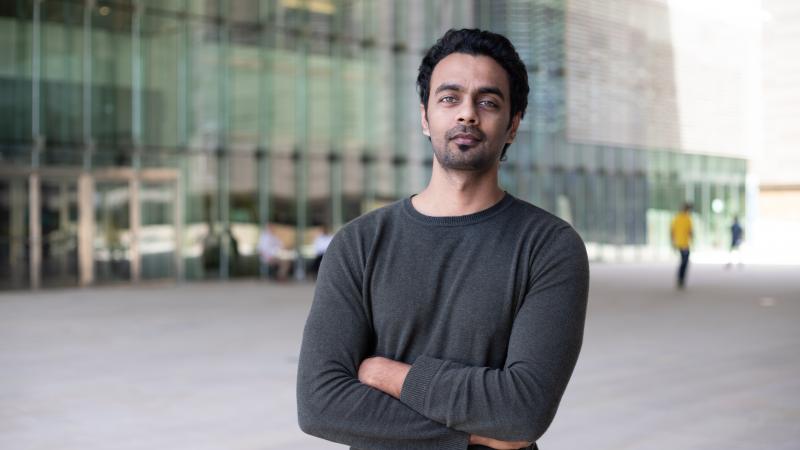By David Murphy, KAUST News
Ghulam Qadir, a third-year Ph.D. student in KAUST Associate Professor Ying Sun's Environmental Statistics research group, recently received a best poster award from the Italian Environmetrics Society (GRASPA) and the International Environmetrics Society (TIES) at the GRASPA 2019 conference held from July 15 to 16 in Pescara, Italy.
Qadir's winning poster—titled "Estimation of Spatial Deformation for Non-stationary Processes via Variogram Alignment"—was based on the student's first Ph.D. research project at KAUST. It is co-authored by his Ph.D. supervisor Sun and Associate Professor Sebastian Kurtek, who is based in the Department of Statistics at the Ohio State University, U.S.
"I won the award due to the scientific quality, structure and organization of the poster presentation," Qadir stated.
Developing inventive statistical models
At KAUST, Qadir's main research interest centers on developing covariance models for multivariate nonstationary random fields with applications to environmental data. His work involves developing models for univariate as well as multivariate spatial data.
Since joining KAUST from the Hindu College University of Delhi, India—where he obtained a B.S and M.S. in statistics—Qadir has found that while modeling spatial processes, some statisticians often assume second-order stationarity. This implies a "translation invariant spatial covariances in the data," he said.
Read the full article

